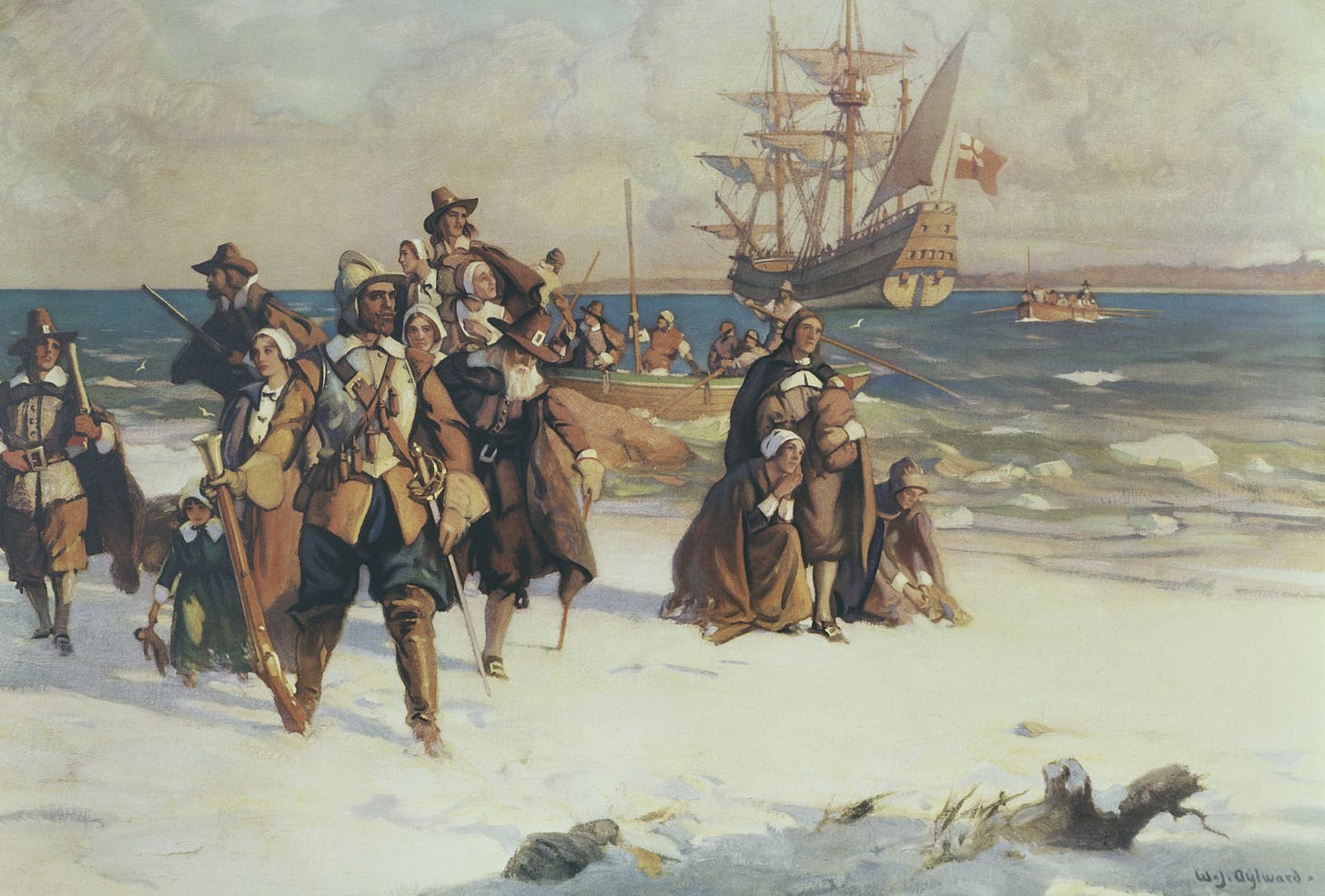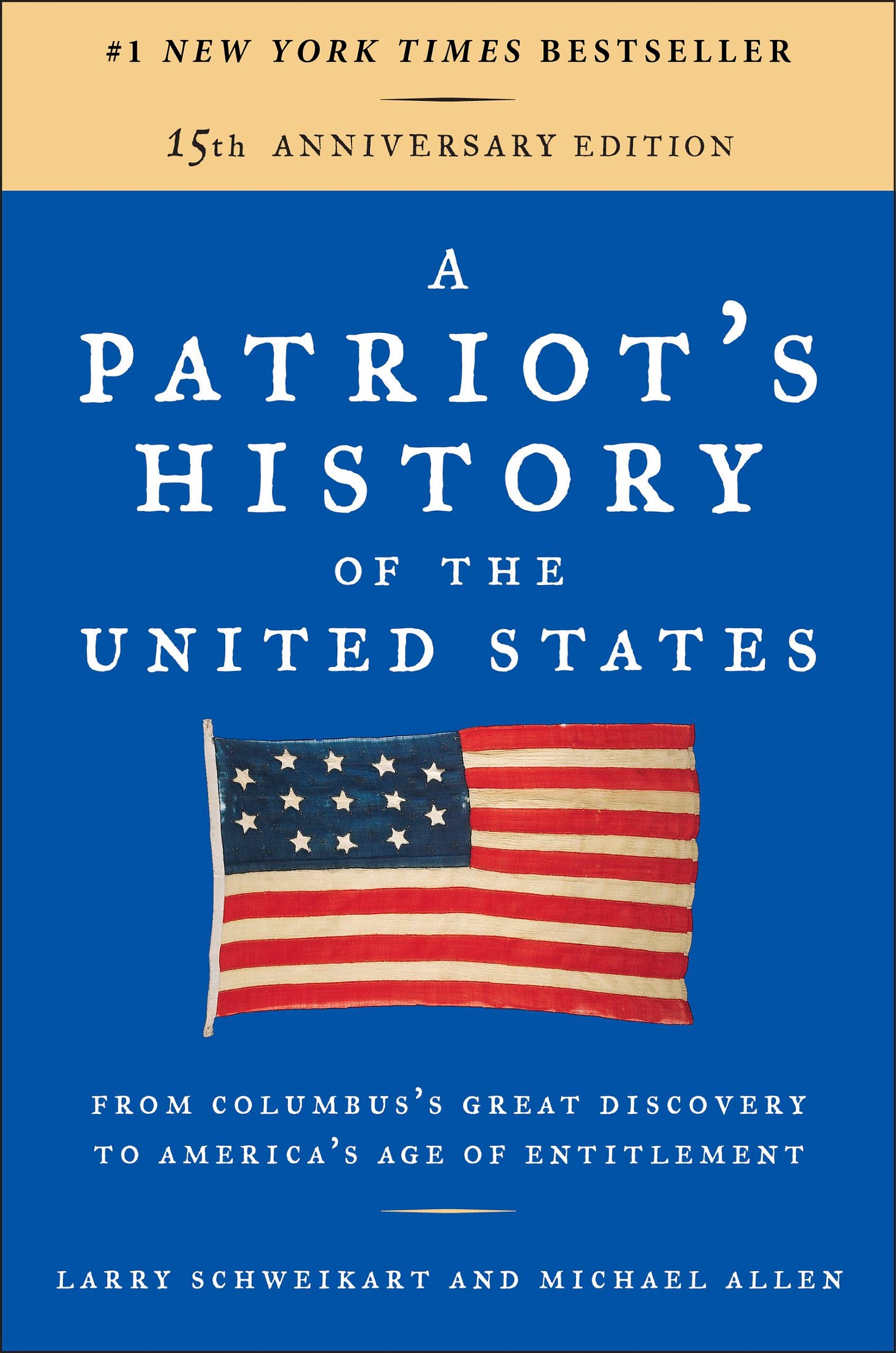Why This Thanksgiving Message is Different Than Most
Because Thanksgiving was More than a Meal
There will be lots of essays about giving thanks for all we have. Absolutely, that is today’s purpose. But Thanksgiving to the Pilgrims embodied a whole lot more.
When the group known as Puritan Separatists sought a haven in the early 1600s from the (in their view) corruption of the Church of England, they first tried Holland. For anyone seeking purity and holy living, Holland was a bad choice. It was the 17th century version of Las Vegas. (“What happens in Holland stays in Holland.”)
They then thought, “Why not America?” The problem was that to get a grant in America, they needed the King to supply one. Lessee, wasn’t it just last week they were denouncing him as an “antichrist” and “whore of Babylon,” or some such words?
Nevertheless, they knew he had a sweet tooth for gold, and approached him with the idea (like that of the Virginia Company) of a business colony that would produce revenue for England. The King bit.
He gave them a northern chunk of the Virginia grant. So off they went, the 102 passengers of the Mayflower. However, half of those were not Puritans. In the nomenclature of the day they were “strangers.” And when the Mayflower arrived off North America they were way off course, putting down anchor in Massachusetts. Before they even got off the boat (except to scout, as they had sent scout parties out on several occasions to confirm they weren’t rowing into a trap), the Puritans had some big issues to settle, none of them economic.
How to make amends with the King for not going where they were supposed to?
How to deal with the “strangers?”
Who was their leader? Unlike the Jamestown settlers of thirteen years earlier, they had no leader appointed by a British council.
Meeting aboard the ship, the drafted a “Compact” with each other and pledged their allegiance to the King. Check.
They allowed all “strangers” in the “body politic” to be treated as equals with the Puritans. Check.
And they among themselves settled on John Carver as their governor.
More than two and a half years before Thanksgiving, the “Pilgrims” as they came to be called had introduced into America two of the four “Pillars of American Exceptionalism” that Mike Allen and I elaborate in A Patriot’s History of the United States: namely 1) that the new country would be founded on a Christian, mostly Protestant religion, which was bottom-up in its governance through congregations; 2) Common law, meaning the law came from the people upward, not from the King down; then within about a year after going ashore they adopted the other two “Pillars,” 3) Private property with written titles and deeds (which is what specifically led to the Thanksgiving feast and proclamation by Carver; and 4) A free market economy. (It should be noted that the Jamestown settlers had neither #1 or #2, as they were Anglicans—-not a “Protestant” church but a copy of the Catholic top-down church, and their leadership came from London.
All the factors that made American different from any country in human history—-then or now—were present in Plymouth by 1630. Thanksgiving was for the food, but the food was due to the success of the Pillars. Happy Thanksgiving.
Larry Schweikart
Rock drummer, Film maker,NYTimes #1 bestselling author
Link for Patriot’s History Vimeo
Link to buy larry a coffee
http://buymeacoffee.com/larrys






As a Reformed Calvinist I happen to know firsthand Anglicans don't like being compared to Roman Catholic s. In God's Sovereign Plan I'm thankful for the Puritans coming to America and thankful for my Puritan roots!